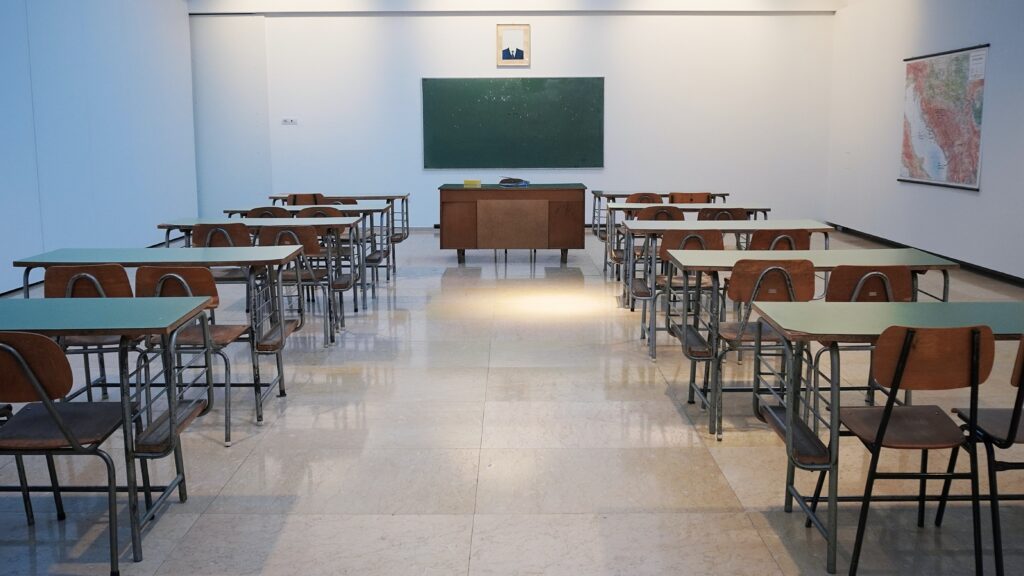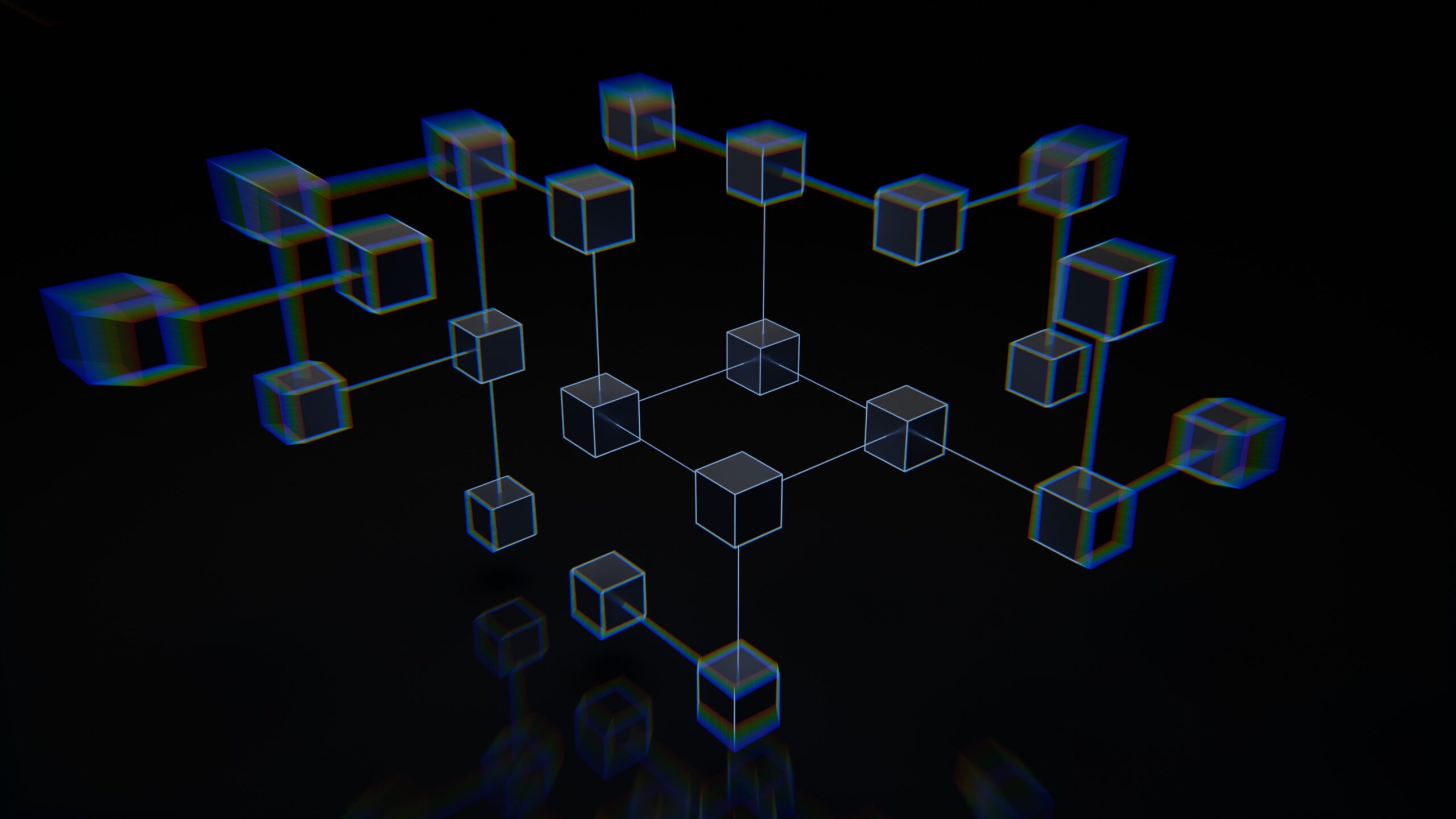Blockchain technology is emerging as a game-changer in various industries, and the education sector is no exception. The immutable and decentralized nature of blockchain has paved the way for innovative solutions to longstanding challenges in education. In this article, we’ll explore the transformative role that blockchain is playing in education, from safeguarding the integrity of academic records to redefining the way we learn and verify credentials.
The Importance of Education Data

Education institutions deal with vast amounts of sensitivxe data, ranging from student records and academic achievements to financial transactions. The importance of securing and efficiently managing this data cannot be overstated. However, traditional methods of record-keeping and data management often fall short, leaving room for errors, fraud, and inefficiencies.
Here are five key points about the use of blockchain for secure record-keeping:
- Immutability and Transparency:
- Blockchain’s core strength lies in its immutability. Once data is recorded on a blockchain, it cannot be altered or deleted. This feature ensures the integrity and permanence of records, making them highly reliable.
- Additionally, the transparent nature of blockchain allows authorized parties to access and verify records, enhancing accountability and trust in the record-keeping process.
- Protection Against Tampering:
- Traditional record-keeping systems are vulnerable to tampering and data manipulation. Blockchain’s cryptographic design makes it extremely resistant to tampering. Each block in the chain contains a reference to the previous block, creating a secure and unbroken chain of information.
- Enhanced Data Security:
- Blockchain employs advanced encryption techniques to secure data. Records are stored across a decentralized network of computers (nodes), making it extremely challenging for malicious actors to compromise the system.
- Data breaches and unauthorized access are minimized, reducing the risk of data leaks and security breaches.
- Streamlined Verification:
- Blockchain simplifies the process of verifying records. Authorized users can quickly access and verify information without the need for intermediaries or extensive paperwork.
- This is particularly valuable in contexts such as academic credential verification, where employers or institutions can efficiently confirm the authenticity of degrees and certifications.
- Diverse Applications:
- While commonly associated with financial transactions and cryptocurrencies, blockchain’s application extends well beyond that. It is versatile and can be adapted for various record-keeping purposes, including healthcare records, supply chain tracking, legal documentation, and of course, education records.
- Its adaptability and versatility make blockchain a promising technology for secure record-keeping across numerous industries.
Blockchain for Secure Record-Keeping
Blockchain technology provides a robust solution to the challenges of secure data management. By design, blockchain is a decentralized ledger that ensures transparency, immutability, and security. Educational institutions can leverage blockchain to maintain tamper-proof records of student achievements, course enrollments, and certifications. This not only enhances data security but also simplifies the process of retrieving and verifying academic information.
Verification of Academic Credentials

One of the standout applications of blockchain in education is the verification of academic credentials. In the past, verifying the authenticity of a degree or certification was a cumbersome process, often requiring manual checks and interactions with multiple institutions. Blockchain simplifies this process by enabling instant and reliable verification of academic records. Educational credentials stored on the blockchain can be easily accessed and verified by employers, institutions, or any relevant parties.
Benefits of blockchain in academic credentials:
- Instant and Reliable Verification:
- Blockchain technology enables the creation of tamper-proof digital records of academic credentials, such as degrees, certificates, and diplomas. These records are stored in a decentralized manner, ensuring their integrity and immutability.
- When individuals or organizations need to verify someone’s academic qualifications, they can do so quickly and easily by accessing the blockchain. This instant verification process eliminates the need for time-consuming manual checks and reduces the risk of credential fraud.
- Preventing Credential Fraud:
- Academic credential fraud is a significant concern, with individuals often presenting fake degrees or certifications. Blockchain combats this issue by providing a secure and transparent means of verifying credentials.
- Educational institutions can issue digital certificates directly to students, which are then recorded on the blockchain. These certificates are cryptographically secured and can be easily verified by employers, universities, or any interested parties.
- Enhancing Data Privacy:
- Blockchain also addresses privacy concerns related to academic records. With traditional methods, individuals often need to disclose sensitive personal information to verify their credentials. In contrast, blockchain-based verification systems can be designed to only reveal necessary information, protecting individuals’ privacy while still confirming their qualifications. This selective disclosure of information enhances data security and privacy in the verification process.
Improving Student Identity Verification
Blockchain technology also has the potential to revolutionize student identity verification. With blockchain-based identity systems, students can have secure, portable digital IDs that streamline enrollment, reduce fraud, and enhance the overall educational experience. These digital IDs can be used for accessing campus services, online learning platforms, and even securing scholarships or financial aid.
Decentralized Learning Platforms

Blockchain’s impact on education extends beyond data management and verification. Decentralized learning platforms are emerging as a new paradigm in education. These platforms leverage blockchain to create a transparent and secure environment for both learners and educators. They empower learners to have more control over their educational journey, facilitating the creation and sharing of educational content, and enabling peer-to-peer interactions.
Blockchain empowers decentralized learning platforms by ensuring transparency, security, and user control. Through blockchain, learners can access tamper-proof, verifiable records of their achievements. Content creation and sharing become efficient, and trust is established among peers, enhancing the overall learning experience. Blockchain revolutionizes education by putting learners and educators in control.
Reducing Fraud in Online Education
Online education has gained tremendous popularity, but it has also faced challenges related to cheating and plagiarism. Blockchain can be used to combat fraud in online education by creating a tamper-proof record of a student’s work and achievements. This ensures that online assessments and credentials are reliable and trustworthy, boosting the credibility of online education programs.
Conclusion
In conclusion, blockchain technology is poised to revolutionize the education sector by addressing critical issues related to data security, credential verification, and online learning. Its transparent and secure nature makes it an ideal solution for safeguarding the integrity of academic records and enhancing the overall educational experience. As blockchain adoption continues to grow in education, we can expect to see a future where learning is more accessible, credentials are easily verifiable, and fraud is significantly reduced. The transformation has already begun, and the future of education looks brighter than ever with blockchain leading the way.
FAQs
1. How does blockchain technology enhance the security of education data?
- Blockchain ensures data security in education by creating a decentralized and tamper-proof ledger. It eliminates the risk of data manipulation and unauthorized access, making it a robust solution for safeguarding student records and academic information.
2. Can blockchain be used for verifying academic credentials from any institution?
- Yes, blockchain can be used for verifying academic credentials from any institution that adopts blockchain-based record-keeping. It simplifies the process of verifying degrees, certificates, and diplomas, promoting transparency and reliability in credential verification.
3. What are decentralized learning platforms, and how do they benefit learners and educators?
- Decentralized learning platforms leverage blockchain to create transparent and secure educational environments. They empower learners by allowing them to control their educational journey, share content, and interact with peers directly. Educators benefit from improved content creation and sharing capabilities.
4. How can blockchain reduce fraud in online education?
- Blockchain addresses fraud in online education by creating tamper-proof records of student work and achievements. This ensures the credibility of online assessments and credentials, making it more difficult for individuals to cheat or use fake qualifications.
5. Is blockchain technology widely adopted in the education sector, or is it still in the experimental stage?
- Blockchain adoption in education is growing steadily. While it may not be universally implemented, numerous educational institutions and initiatives are actively using blockchain for secure record-keeping and credential verification. As the technology matures, we can expect broader adoption in the future.

